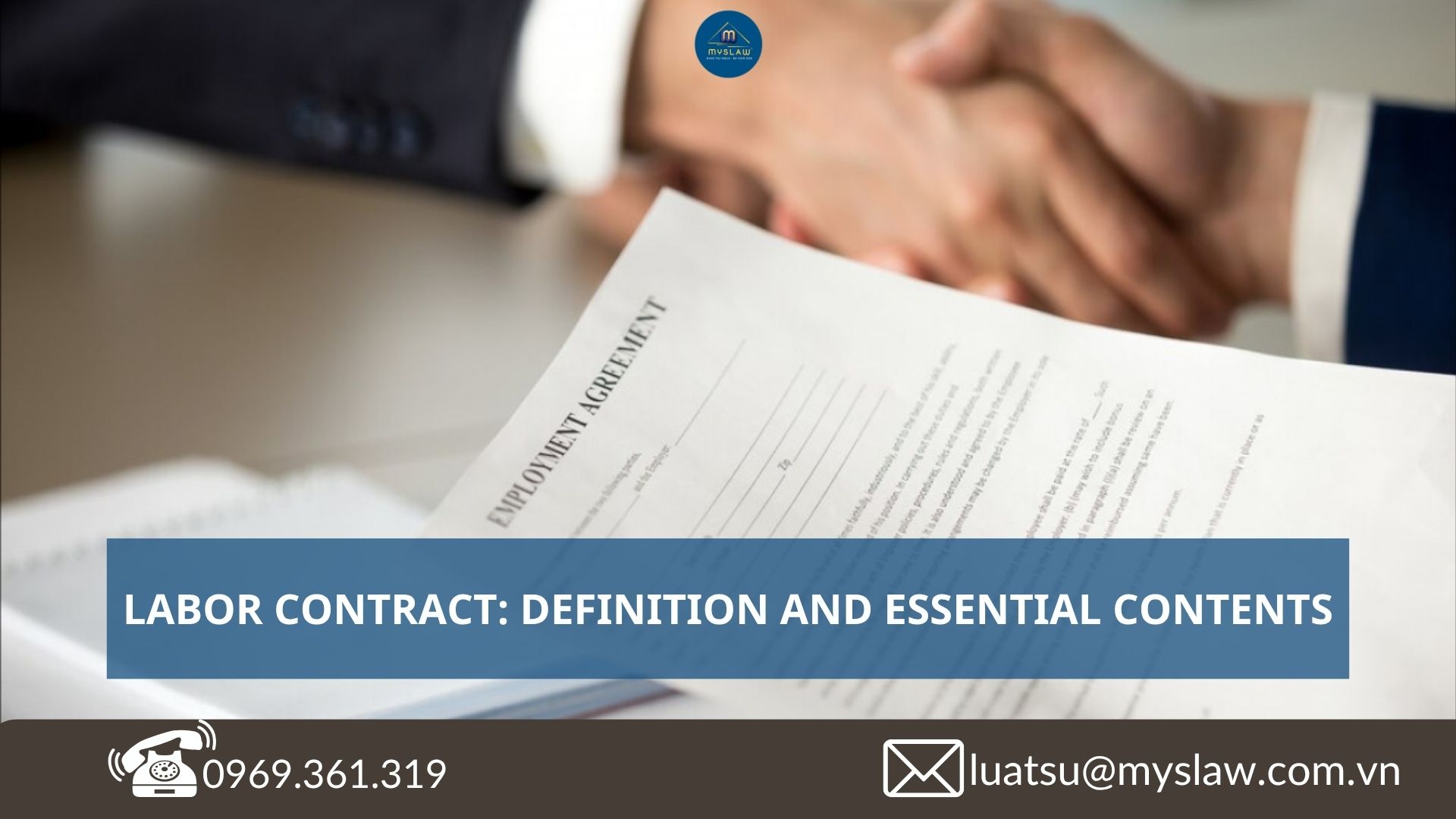As society progresses, labor contracts have become vital for ensuring fairness and transparency in the relationship between employees and employers. This article explores the definition of a labor contract, its types, essential contents, and key considerations for employees before signing.

1. What is a Labor Contract?
According to Clause 1, Article 13 of the Labor Code 2019 of Vietnam, a labor contract is an agreement between an employee and an employer regarding paid employment, wages, working conditions, and the rights and obligations of each party in the labor relationship. If the parties use a different term but the content reflects paid employment, wages, and management or supervision by one party, it is still considered a labor contract.
A labor contract is a legally binding document that outlines the obligations and rights of both parties during employment, providing a mechanism to resolve disputes. It safeguards the interests of employees and employers, promotes professionalism, and fosters mutual trust. Through a labor contract, employees can work confidently, and employers can utilize labor effectively.
Article 7 of the Labor Code 2019 states that the labor relationship is established through dialogue, negotiation, and agreement based on principles of voluntariness, good faith, equality, cooperation, and respect for each party’s legitimate rights and interests. Thus, a labor contract must be founded on freedom and voluntariness, allowing parties to choose, negotiate, sign, and terminate the contract per legal provisions, and equality and respect, affirming the equal legal standing of both parties.
2. Types of Labor Contracts
Per Article 20 of the Labor Code 2019, there are two primary types of labor contracts. A fixed-term labor contract specifies an end date, with a maximum duration of three years. If an employee continues working after its expiry, the parties must enter an indefinite-term labor contract, and a fixed-term contract can only be renewed once. An indefinite-term labor contract, conversely, does not specify an end date.
3. Essential Contents of a Labor Contract
Employees must understand a labor contract’s core components to avoid risks. According to Article 21 of the Labor Code 2019, a labor contract should include several key elements. It must contain basic information about the employer and employee, such as full name, date of birth, gender, phone number, and identification number issued by a competent authority. The contract should specify its duration, noting the start date and, for fixed-term contracts, the end date, while indefinite-term contracts require only the start date.
The contract must describe the tasks the employee will perform and the workplace, including all locations if the job involves multiple sites. It should detail wages, including the base salary, allowances like performance bonuses or meal and travel subsidies, and other benefits such as health and social insurance or leave policies. The payment schedule, whether monthly, weekly, or daily, must be clear, along with provisions for salary increases and calculations for leave or additional bonuses.
The contract must outline the rights and obligations of both parties. For employees, this includes rights to wages, insurance, leave, training, career advancement, and occupational health and safety protections, per legal standards, and obligations to perform tasks diligently, adhere to company regulations, maintain confidentiality, protect company assets, and comply with safety rules. For employers, rights include managing and supervising work, issuing instructions, and requesting work outputs, while obligations involve providing safe and healthy working conditions, necessary equipment, and compliance with labor safety laws.
Termination provisions are also essential. Employers must notify employees in advance of contract termination, except in cases of dismissal for serious violations. Employees are entitled to severance or allowances upon termination, as per legal regulations, and both parties can dispute termination decisions, which will be resolved per the law.
4. Key Considerations for Employees Before Signing a Labor Contract
A labor contract is a legally binding tool for managing labor relations. By signing, employees agree to its terms and must comply. To minimize disputes, employees should take several precautions. They must thoroughly review the contract to ensure its terms are clear, accurate, and free of disadvantageous provisions. Understanding rights and obligations helps employees protect their interests and fulfill responsibilities.
If any terms are unclear, employees should request clear and accurate explanations from the employer. They must be cautious of contracts with unreasonable terms, such as below-market wages or excessive working hours, to safeguard their rights and health. Employees should provide only copies of relevant documents and retain a copy of the signed contract as evidence in case of disputes. If uncertain, they can seek advice from legal or HR professionals for guidance.
In conclusion, a labor contract ensures transparency and fairness in employment, preventing unnecessary disputes. By understanding and carefully reviewing the contract, employees and employers can foster a cooperative and legally compliant working environment.
The above information is provided by Mys Law. For any questions regarding the content of this article, please contact 0969.361.319 or email: [email protected] for further clarification. Best regards!
Compiler: Nguyen Anh Quan





